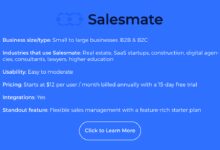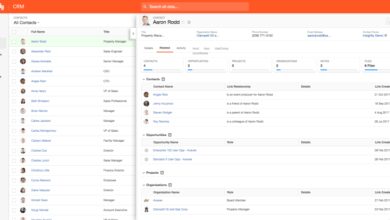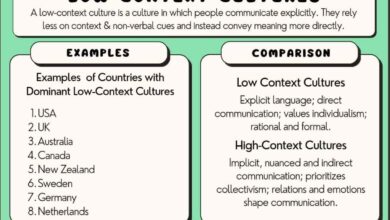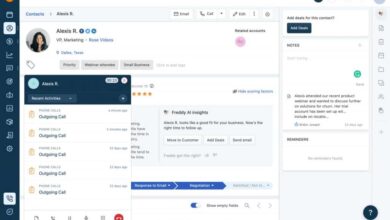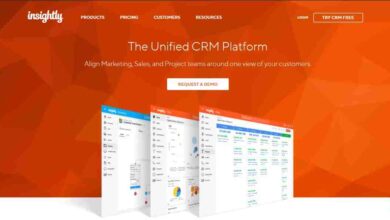CRM Software for Small Business: 7 Powerful Tools to Skyrocket Growth
Running a small business is no small feat. Juggling leads, customers, and follow-ups can feel overwhelming—until you discover the right CRM software for small business. It’s not magic, but it might as well be.
Why CRM Software for Small Business Is a Game-Changer

Customer Relationship Management (CRM) software isn’t just for big corporations with deep pockets. In fact, small businesses often benefit the most from adopting CRM tools early. These systems help organize customer data, automate repetitive tasks, and improve sales and marketing efficiency—all critical for sustainable growth.
Streamlines Communication and Follow-Ups
One of the biggest challenges small businesses face is inconsistent follow-up with leads and customers. A CRM software for small business centralizes all communication—emails, calls, notes, and meeting logs—into one accessible platform. No more lost messages or forgotten promises.
- Automated reminders for follow-up calls or emails
- Track every interaction with a client in chronological order
- Assign tasks to team members with deadlines
This level of organization ensures that no opportunity slips through the cracks, especially when managing a growing customer base.
Improves Sales Pipeline Visibility
Without a clear view of your sales pipeline, forecasting revenue becomes guesswork. CRM software for small business provides real-time dashboards that show where each lead is in the sales funnel—whether they’re just inquiring, negotiating, or ready to buy.
- Visualize stages of the sales process with drag-and-drop interfaces
- Identify bottlenecks in your sales cycle
- Forecast revenue with greater accuracy
“A CRM doesn’t just store data—it turns it into actionable insights.” — Forbes
With this visibility, small business owners can make informed decisions, allocate resources more effectively, and focus on high-value opportunities.
Top 7 CRM Software for Small Business in 2024
Choosing the right CRM software for small business can be overwhelming with so many options available. To help you cut through the noise, we’ve compiled a list of the top 7 platforms that combine affordability, ease of use, and powerful features tailored for small teams.
1. HubSpot CRM
HubSpot CRM stands out as one of the most user-friendly and feature-rich platforms for small businesses. The best part? Its free version is incredibly robust, offering contact management, email tracking, deal pipelines, and live chat.
- Free forever plan with no user limit
- Seamless integration with Gmail and Outlook
- Marketing, sales, and service hubs available as paid upgrades
HubSpot’s intuitive interface makes onboarding quick, and its ecosystem grows with your business. Whether you’re a solopreneur or a team of ten, HubSpot scales effortlessly. Learn more at HubSpot CRM.
2. Zoho CRM
Zoho CRM is a powerhouse for small businesses looking for automation and customization without the enterprise price tag. It offers AI-driven insights, workflow automation, and a mobile app that keeps your team connected on the go.
- AI assistant (Zia) helps predict deal closures and automates data entry
- Customizable sales pipelines and approval processes
- Integrates with over 40 Zoho apps and 500+ third-party tools
Zoho CRM’s pricing starts at just $14/user/month, making it one of the most cost-effective CRM software for small business solutions. Visit Zoho CRM to explore its full potential.
3. Salesforce Essentials
When people think of Salesforce, they often assume it’s only for large enterprises. But Salesforce Essentials is specifically designed for small businesses with up to 10 users. It brings enterprise-grade CRM capabilities to smaller teams.
- Pre-built sales and support processes
- Mobile-first design for remote teams
- Real-time collaboration and file sharing
While it’s pricier than some alternatives at $25/user/month, the depth of features and scalability make it a smart long-term investment. Check it out at Salesforce Essentials.
4. Freshsales (by Freshworks)
Freshsales is known for its clean interface and powerful built-in phone and email features. It’s ideal for sales-driven small businesses that want everything in one place—no need for third-party integrations to get started.
- Free phone and email within the platform
- AI-based lead scoring to prioritize hot prospects
- Visual deal pipeline with drag-and-drop functionality
Pricing starts at $15/user/month, and the platform is especially strong for startups and growing SMBs. Learn more at Freshsales CRM.
5. Insightly
Insightly bridges the gap between CRM and project management, making it perfect for small businesses that handle client projects. If you’re in consulting, design, or services, this tool keeps both customer relationships and project timelines on track.
- Project and task management integrated with CRM
- Workflow automation for lead nurturing
- Customer lifecycle tracking from lead to repeat buyer
Starting at $29/user/month, Insightly is on the higher end but delivers exceptional value for project-based businesses. Explore it at Insightly.
6. Pipedrive
Pipedrive is built by salespeople, for salespeople. Its visual sales pipeline is one of the most intuitive in the industry, making it a favorite among small sales teams who want clarity and simplicity.
- Drag-and-drop pipeline management
- Activity reminders and goal tracking
- Strong integration with Gmail, Slack, and Zoom
Pipedrive’s pricing starts at $14.90/user/month, and its mobile app ensures you’re never out of touch with your deals. Visit Pipedrive to see how it can streamline your sales process.
7. Agile CRM
Agile CRM offers an all-in-one solution that combines sales, marketing, and service features. It’s particularly strong for small businesses that want marketing automation without paying for separate tools.
- Free plan available with basic CRM, marketing, and helpdesk features
- Website tracking and visitor identification
- Email campaigns and drip automation
While the interface can feel cluttered compared to others, its feature density makes it a solid choice for budget-conscious startups. Learn more at Agile CRM.
Key Features to Look for in CRM Software for Small Business
Not all CRM platforms are created equal. When evaluating CRM software for small business, focus on features that deliver real value without overwhelming complexity.
Contact and Lead Management
The foundation of any CRM is its ability to store and organize customer information. Look for tools that allow you to:
- Import contacts from email, spreadsheets, or social media
- Tag and segment contacts by industry, location, or behavior
- Track lead sources and campaign performance
Effective contact management ensures you’re not just collecting data, but using it strategically.
Automation and Workflow Tools
Small teams need to do more with less. Automation features like email sequences, task assignments, and follow-up reminders can save hours every week.
- Automated email campaigns based on user behavior
- Triggered actions (e.g., assign a task when a lead opens an email)
- Custom workflows for onboarding, support, or sales processes
These tools reduce manual work and ensure consistency across customer interactions.
Mobile Accessibility
Today’s small business owners are on the move. A CRM with a strong mobile app allows you to update records, log calls, and check pipelines from anywhere.
- Offline access to key data
- Mobile calling and email integration
- Push notifications for urgent tasks
Mobile functionality is no longer a luxury—it’s a necessity.
How to Choose the Right CRM Software for Small Business
Selecting the right CRM software for small business isn’t just about features—it’s about fit. Here’s a step-by-step guide to help you make the best choice.
Assess Your Business Needs
Start by identifying your pain points. Are you losing leads? Struggling with follow-ups? Need better reporting? List your top 3-5 challenges and use them as criteria for evaluation.
- Are you sales-heavy or service-focused?
- Do you need marketing automation?
- How many users will need access?
Being clear about your needs prevents overspending on unnecessary features.
Consider Scalability and Integration
Your CRM should grow with your business. Look for platforms that offer tiered pricing and easy integration with tools you already use—like email, calendars, accounting software, or e-commerce platforms.
- Check API availability for custom integrations
- Look for pre-built connectors (e.g., QuickBooks, Shopify, Mailchimp)
- Ensure data portability in case you switch later
Scalability ensures you won’t outgrow your CRM in a year.
Test Before You Commit
Most CRM software for small business offers free trials or freemium plans. Take advantage of these to test usability, onboarding, and support.
- Invite team members to try it
- Import a sample dataset to test functionality
- Reach out to customer support with a question
Real-world testing reveals more than any brochure ever could.
Common Mistakes to Avoid When Implementing CRM Software for Small Business
Even the best CRM software for small business can fail if implemented poorly. Avoid these common pitfalls to ensure success.
Skipping User Training
One of the biggest reasons CRM adoption fails is lack of training. If your team doesn’t understand how to use the system, they’ll revert to spreadsheets and sticky notes.
- Provide hands-on training sessions
- Create simple guides or videos
- Appoint a CRM champion in your team
Investing in training pays off in higher adoption and better data quality.
Over-Customizing Too Early
It’s tempting to tweak every field and workflow on day one. But over-customization can lead to complexity and confusion.
- Start with default settings and basic pipelines
- Iterate based on real usage and feedback
- Only customize what directly impacts your workflow
Let the CRM evolve with your business, not the other way around.
Ignoring Data Quality
A CRM is only as good as the data it contains. Incomplete or outdated records render the system useless.
- Set data entry standards (e.g., required fields)
- Regularly clean and deduplicate records
- Use automation to reduce manual input
“Garbage in, garbage out” applies perfectly to CRM systems.
Enforce data hygiene from day one.
How CRM Software for Small Business Boosts Customer Retention
Acquiring a new customer can cost five times more than retaining an existing one. CRM software for small business plays a crucial role in building lasting relationships.
Personalized Communication
With a CRM, you can track customer preferences, purchase history, and past interactions. This data allows you to send personalized messages that feel relevant and timely.
- Send birthday discounts or anniversary offers
- Recommend products based on past purchases
- Address customers by name in all communications
Personalization builds trust and loyalty.
Proactive Support
A CRM helps you anticipate customer needs. For example, if a client’s subscription is about to expire, the system can alert you to reach out with renewal options.
- Set up service tickets and track resolution times
- Monitor customer satisfaction with surveys
- Identify at-risk customers before they churn
Proactive service turns satisfied customers into advocates.
Upselling and Cross-Selling Opportunities
By analyzing customer behavior, a CRM can suggest the right time to offer upgrades or complementary products.
- Automate upsell recommendations after a purchase
- Track product usage to identify expansion potential
- Segment customers for targeted offers
This turns your CRM into a revenue-generating engine, not just a database.
The Future of CRM Software for Small Business
CRM technology is evolving fast, and small businesses are no longer left behind. Emerging trends are making these tools smarter, more intuitive, and more accessible than ever.
AI and Predictive Analytics
Artificial intelligence is no longer science fiction. Modern CRM platforms use AI to predict which leads are most likely to convert, suggest the best time to contact a client, and even draft emails.
- AI-powered chatbots for instant customer support
- Predictive lead scoring based on behavior patterns
- Natural language processing for sentiment analysis
These features level the playing field, giving small businesses insights once reserved for large enterprises.
Integration with Communication Platforms
The future of CRM lies in seamless integration with tools like Slack, Microsoft Teams, and WhatsApp. Instead of switching between apps, your CRM will live where your team already communicates.
- Log conversations directly from messaging apps
- Receive CRM alerts in your team chat
- Start deals from a WhatsApp message
This reduces friction and increases adoption.
Increased Focus on User Experience
As competition grows, CRM vendors are prioritizing simplicity and design. Expect more intuitive interfaces, voice commands, and mobile-first experiences tailored for small business owners.
- Drag-and-drop customization without coding
- Voice-to-CRM commands for hands-free updates
- Guided onboarding with AI assistants
The goal is to make CRM so easy that using it feels natural.
What is the best CRM software for small business with a free plan?
HubSpot CRM offers the most comprehensive free plan, including contact management, email tracking, deal pipelines, and live chat. It’s ideal for startups and solopreneurs who want powerful features without upfront costs.
Can CRM software help with marketing automation?
Yes, many CRM platforms like Zoho CRM, Agile CRM, and HubSpot include built-in marketing automation features such as email campaigns, lead nurturing, and website tracking—perfect for small businesses managing their own marketing.
How much does CRM software for small business typically cost?
Prices vary, but most small business CRMs range from free (HubSpot) to $50/user/month. Entry-level plans usually start around $12–$15/user/month, offering core features like contact management and sales pipelines.
Is CRM software difficult to learn for non-tech users?
Not anymore. Modern CRM software for small business is designed with user-friendliness in mind. Platforms like Pipedrive and Freshsales offer intuitive interfaces, guided onboarding, and mobile apps that make adoption easy—even for non-technical teams.
Can I access my CRM on my phone?
Absolutely. All leading CRM software for small business offers mobile apps for iOS and Android, allowing you to manage contacts, log calls, and track deals from anywhere.
Choosing the right CRM software for small business isn’t just about technology—it’s about transformation. From streamlining sales to boosting customer retention, the right CRM can be the backbone of your growth strategy. Whether you’re just starting out or ready to scale, tools like HubSpot, Zoho, and Pipedrive offer powerful, affordable solutions tailored to small teams. The key is to start simple, focus on your needs, and let the data guide your decisions. In today’s competitive landscape, a CRM isn’t a luxury—it’s a necessity for any small business serious about success.
Further Reading:

